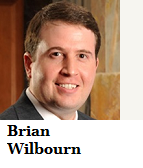By Brian Wilbourn

 It is likely that most prime contractors, at one time or another, have felt that their Government customer was not treating them fairly. It is not always clear, however, when conduct that the contractor views as unfair or uncooperative goes so far as to constitute a breach of contract. A recent decision from the Federal Circuit Court of Appeals has provided important clarifications to this question, which should benefit contractors in pursuing claims against the Government for breach of the obligation of good faith and fair dealing.
It is likely that most prime contractors, at one time or another, have felt that their Government customer was not treating them fairly. It is not always clear, however, when conduct that the contractor views as unfair or uncooperative goes so far as to constitute a breach of contract. A recent decision from the Federal Circuit Court of Appeals has provided important clarifications to this question, which should benefit contractors in pursuing claims against the Government for breach of the obligation of good faith and fair dealing.
It has long been recognized that government contracts, like every contract, imposes on each party an implied duty of good faith and fair dealing in the performance of the contract. This is generally understood to mean that neither party may act to interfere with the other party’s performance, or destroy their reasonable expectations under the contract. In practice, however, it has often been difficult to determine what standard applies in determining whether a breach of this implied duty has occurred.
In Metcalf Const. Co, Inc. v. United States, 102 Fed. Cl. 334 (2011), the United States Court of Federal Claims took a particularly restrictive view of the Government’s duty of good faith and fair dealing. In that case, the Court held that a claim against the Government for breach of the duty of good faith and fair dealing can only be established by showing that the Government’s actions “were specially designed to reappropriate the benefits that the other party expected to obtain from the transaction.” The Court went on to explain that, therefore, “incompetence and/or the failure to cooperate or accommodate a contractor’s request do not trigger the duty of good faith and fair dealing, unless the Government specifically targeted action to obtain the benefit of the contact or where Government actions were ‘undertaken for the purpose of delaying or hampering performance of the contract.’”
Now, about three years later in a decision that should be welcomed by contractors, the Federal Circuit Court of Appeals has held that the Court of Federal Claims got it wrong in Metcalf. On appeal (Metcalf Const. Co, Inc. v. United States, 742 F. 3d 984 (Fed. Cir. 2014)), the Court held that a claim for breach of the obligation of good faith and fair dealing does notrequire “specific targeting,” as suggested by the Claims Court. Moreover, the Court explained, contrary to the assertions of the Government, a claim for breach of the implied obligation of good faith and fair dealing does not require violation of an express provision of the contract.
Instead, the Court of Appeals Court explained that “both the duty not to hinder and the duty to cooperate are aspects of the implied duty of good faith and fair dealing.” The Court explained that “what is promised or disclaimed in a contract helps define what constitutes lack of diligence and interference with or failure to cooperate in the other party’s performance.” Accordingly, what the duty of good faith and fair dealing entails depends (at least in part) on what a particular contract promises. This does not mean that violation of an express provision of the contract must be proven, but, rather, that determining what the obligation of good faith and fair dealings entails on a specific contract requires analysis of the underlying bargain and the parties’ reasonable expectations under the contract.
Ultimately, while the decision may not provide much in the way further clarity as to when a breach of the duty of good faith and fair dealing has occurred on a specific contract, it should nonetheless be a welcomed decision by contractors. The Federal Circuit’s rejection of requirements for “specific targeting” and proof related to the violation of an express contract provision eliminates potential hurdles and makes the prospect of bringing a claim against the Government for breach of its duty of good faith and fair dealing significantly more appealing.
About the Author: Brian Wilbourn is an associate with PilieroMazza in the Government Contracts Group. He may be reached at bwilbourn@pilieromazza.com.


